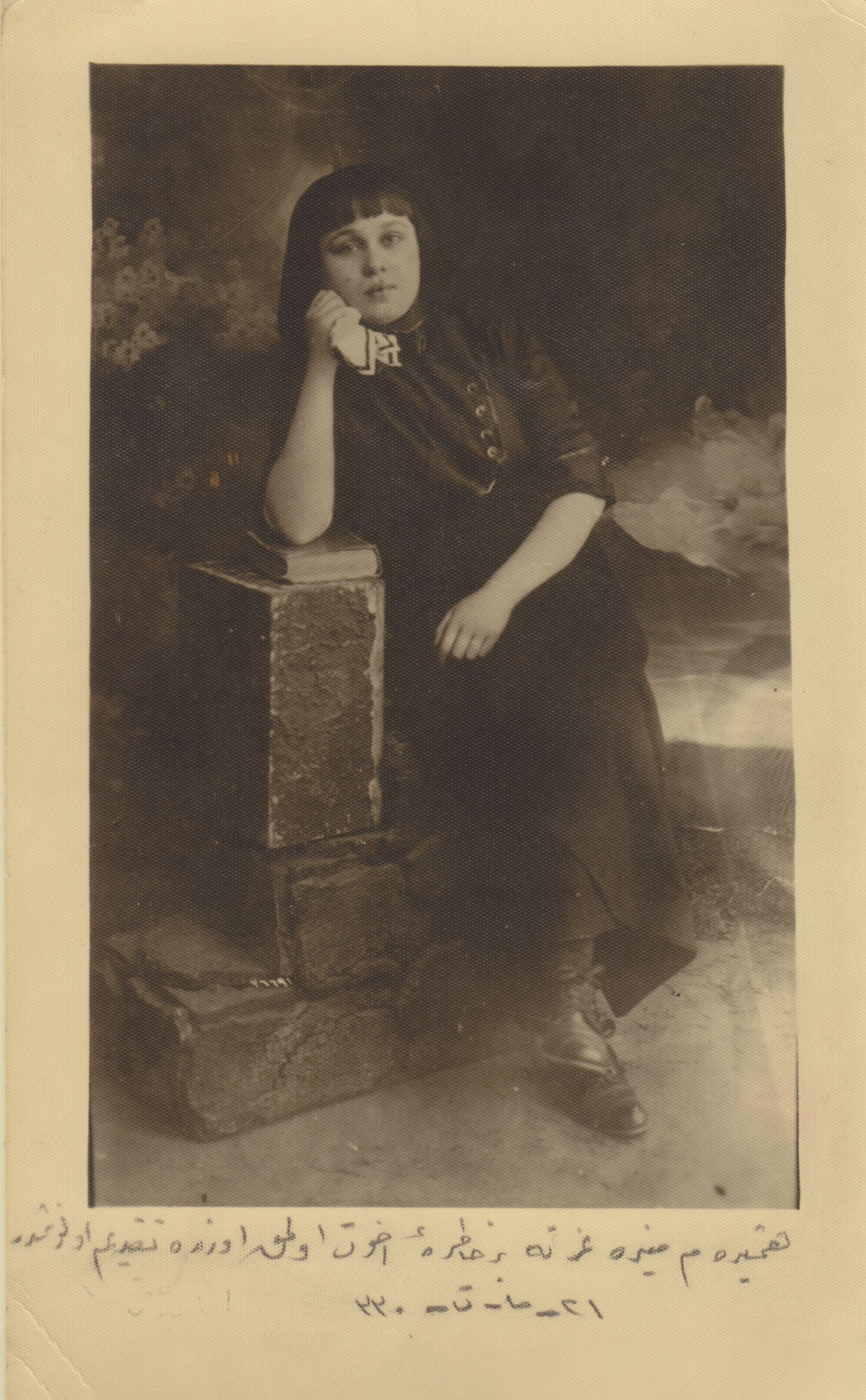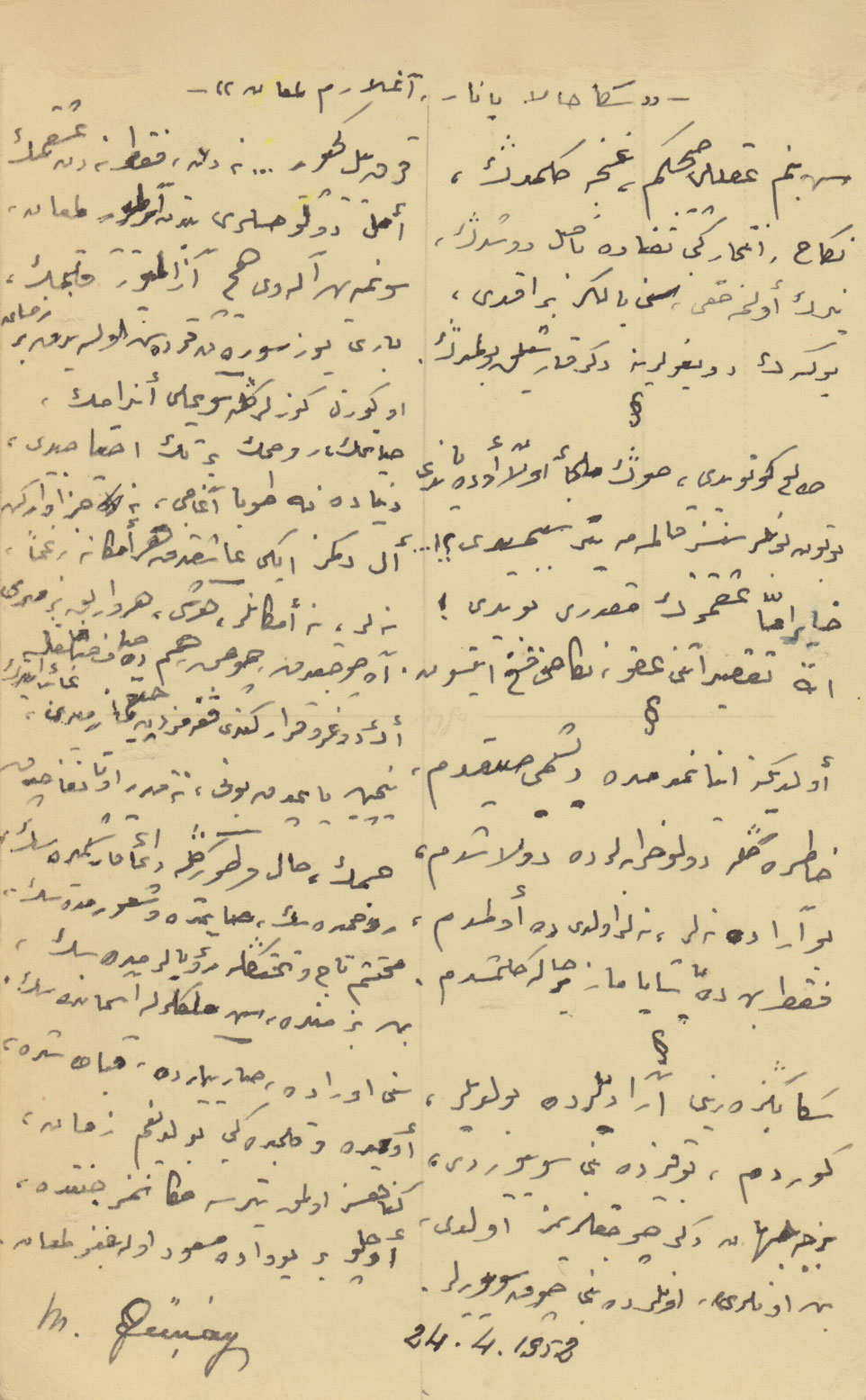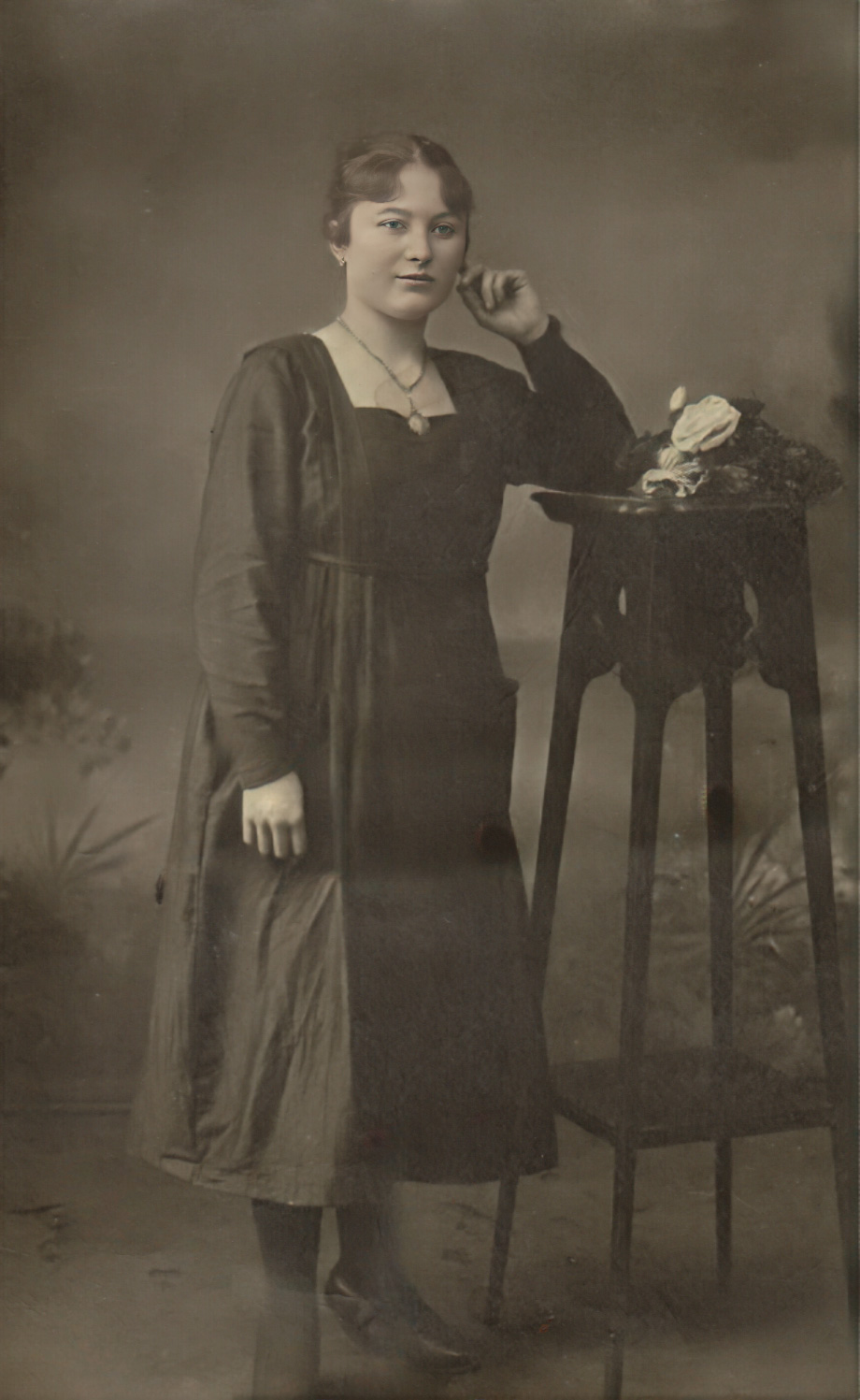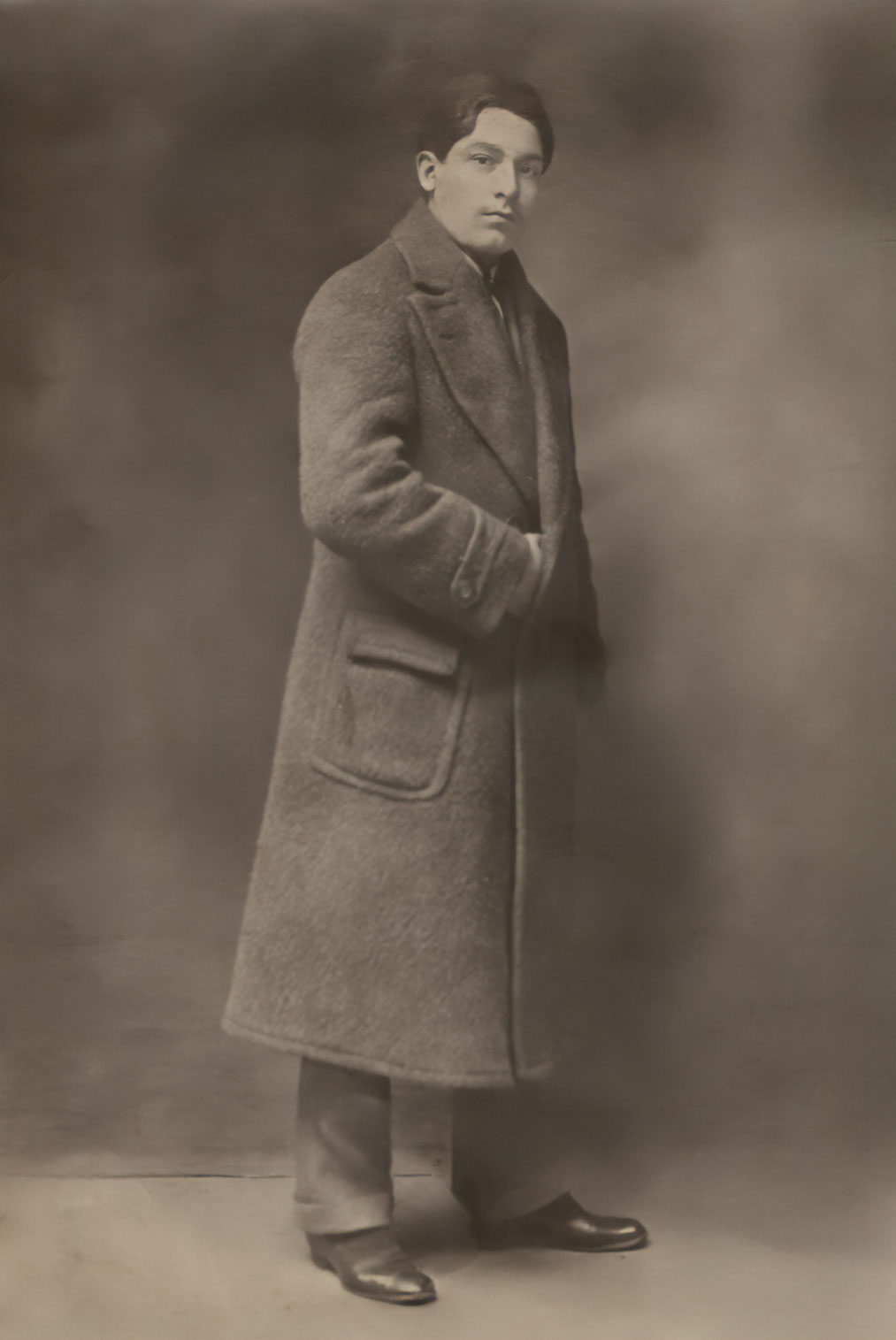Nebiye
While going through old photographs from my mother's family (Günşiray's), one particular photo with a note on the back catches my attention. I wonder who the person in the photo is and what the words written in my grandfather's handwriting mean. I ask the elder family members, but no one seems to remember much. Even the eldest, my aunt claims she doesn’t know anything, yet the hesitation in her eyes suggests that she does—but that the topic is a sensitive one.
I make copies of the photographs and the writings without pressing the matter further. But my curiosity won’t let me leave it alone. Especially for someone like me, who values family heirlooms immensely, letting go is simply not an option.
In my albums, I have other photographs inherited from the family, each carrying notes in Ottoman Turkish. Since I frequently visit secondhand bookstores, I keep these photos with me and search for ways to have them translated. Yet, each time, I get the same response: "Handwriting... very difficult."
One such day, while browsing a bookstore in Kadıköy, hoping to find someone who can decipher Ottoman handwriting, a woman sitting at a table, flipping through books, hears the name "Günşiray" and joins the conversation: "May I take a look as well?"
Luck is on my side. I meet Mine Esiner Özen, an expert in Ottoman Turkish handwriting. She has contributed to significant works such as Süheyl Ünver's Orta Anadolu Defterleri and Türk Cilt Sanatı. Even she acknowledges that the text in my hands won’t be easy to decipher.
When she say, 'Let me give it a try anyway. But it might take quite some time. You’ll have to be patient,' I get so excited and immediately hand her a copy.
Days pass, weeks go by, and there is no news. Just as I am about to lose hope, my phone rings. It’s Mine Hoca: "I managed to extract something. Let’s meet at the same bookstore tomorrow."
I can hardly wait for the next day. My excitement makes it impossible to sit still. Hoping to pass the time, I head to Kadıköy two hours before our meeting and wander through the antiquarian books & ephemera shops.
Finally, the moment arrives. I meet Mine Hoca. She greets me with a warm yet hesitant smile. Her first words sum it all up:
"There is a love story here… A sorrowful love story."
She places the handwritten translation on the table and begins explaining, line by line.
I still burn for you, I weep, Leman...
The first line begins this way. Mine Hoca hesitates for a moment before continuing:
"I believe the woman in this photograph is Leman Hanım. The following lines suggest that she took her own life."
A heavy weight settles in my chest. Mine Hoca goes on:
"There was a hopeless love between Mahir Bey and Leman Hanım… and unfortunately, it ended with Leman Hanım’s suicide."
We both gaze at the lines before us. Even the silence of the moment seems to be telling a story. Mine Hoca continues:
"It was written with deep, powerful emotions… Mahir Bey says he found someone who loved him, that his children helped him heal. But…"
Her sentence lingers in the air, unfinished.
"But despite all of this, despite the passing years, it’s clear that he never forgot Leman Hanım and that he is still tormented by what happened."
As I read the lines, I begin to piece together where my grandmother fits into this sorrowful story. I tell Mine Hoca a little more about my grandmother, Nebiye Hanım, and my grandfather’s early passing.
Our voices tremble. Neither Mine Hoca nor I can continue speaking. On the table, an old photograph and the aching words my grandfather wrote so many years ago remain—lines heavy with sorrow and pain.
A pain that claimed him too soon, taking him away at a young age, lost to cancer.
I thank Mine Hoca and say goodbye. A strange heaviness lingers inside me, and my mind is filled with more questions than answers. I go straight to my aunt’s house. Placing Mine Hoca’s handwritten translation on the table, I look into her eyes and whisper:
"You can tell me now, auntie."
My aunt takes a deep breath. After a long silence, she begins to speak.
Mahir and Leman were deeply in love. But Leman’s father, a strict military officer, strongly disapproved of their relationship. So, they met in secret. Mahir was bold enough to climb into Leman’s room through her window, and Leman was just as daring, welcoming him in.
Of course, there were nights when their boldness almost got them into trouble. One night, since they kept the lights off, Mahir accidentally knocked over the pitcher by Leman’s bedside in the dark. The entire household was alarmed. Her father, a military officer, grabbed his gun and rushed outside. Fortunately, Mahir managed to disappear just in time.
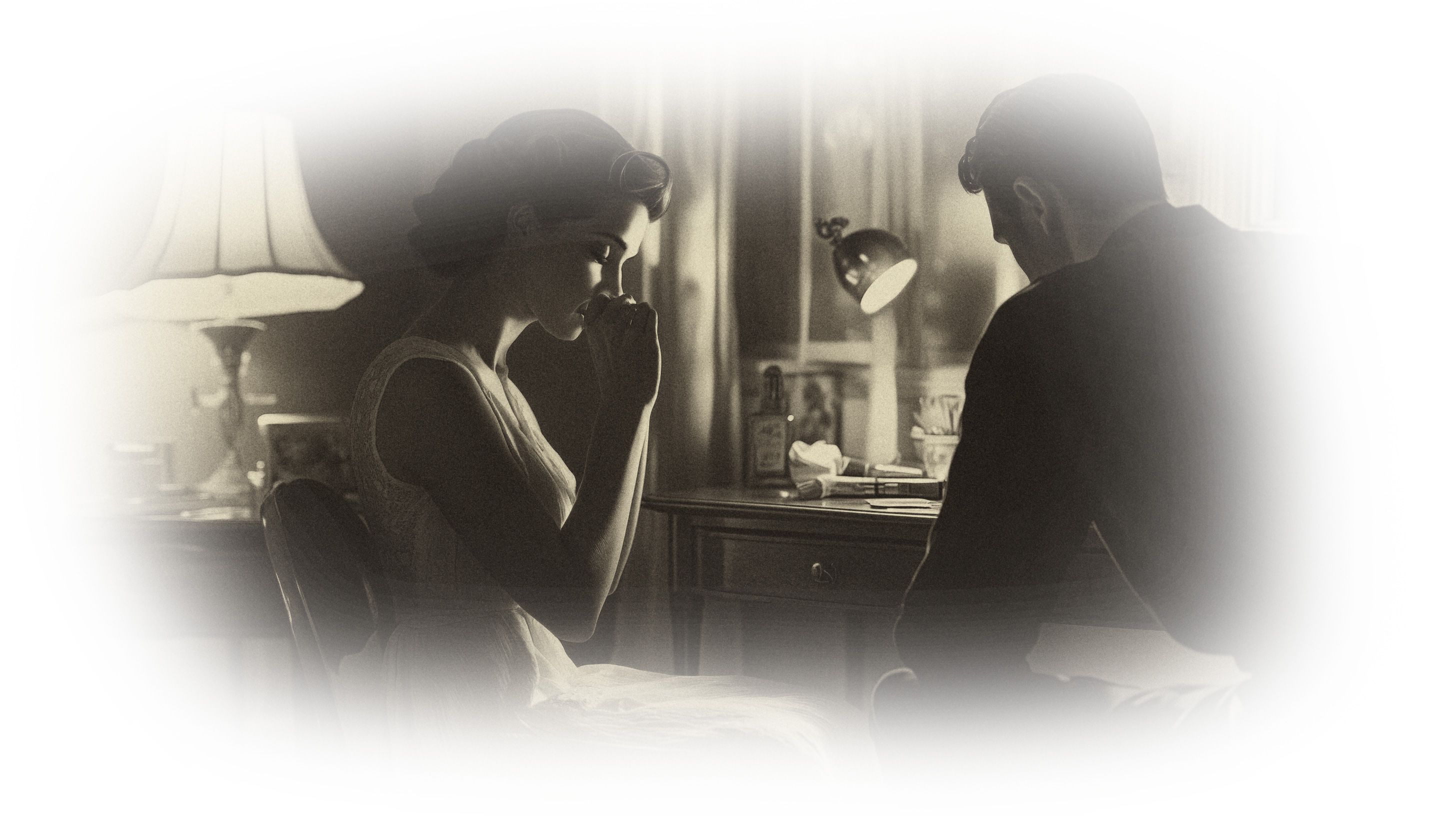
In Cihangir, dreams whispered under the stars at night… And in the mornings, the restless anticipation of the next meeting…
But one day, their forbidden love faced an impossible trial.
When his brother Alaaddin was martyred in Çanakkale during the Battle of Kirte, Mahir, burning with a desire for revenge, enlisted in the army despite his young age and joined the ranks in Çanakkale. That was when the sorrowful days of the two lovers began.
Mahir’s heart remains devoted, beating with the same love during his time in the military. He never forgot her. He wrote to her frequently. But because their love was a secret, he couldn’t send the letters directly. Instead, he entrusted them to a mutual acquaintance in the neighborhood, someone they both believed they could trust. Mahir’s aunt, Hatice Hanım, whom they call 'Tete.'
But 'Tete'—the one they had placed their faith in—betrayed them. She disregards their dreams, hopes, and longing—never delivering the letters to Leman."
Leman, receiving no word from Mahir, was devastated. Weeks turned into months… not a single letter, not a single news reached her. The hope within her slowly faded away.
Then came the final blow—her father. He insisted on marrying her off to someone else. Her desperation, her silence, the months without a letter… no one understood.
And one night…
Alone in her room, she made the decision that would end everything.
Just like the love she believed was left unfinished, so did her life.
Mahir returned from the army, eager to reunite with Leman. But when he learned what had happened, his world shattered.
He withdrew from life. For years, he moved through his days with his head down, going from home to work and back again. He never smiled, never laughed. Even a faint smile rarely touched Mahir’s face.
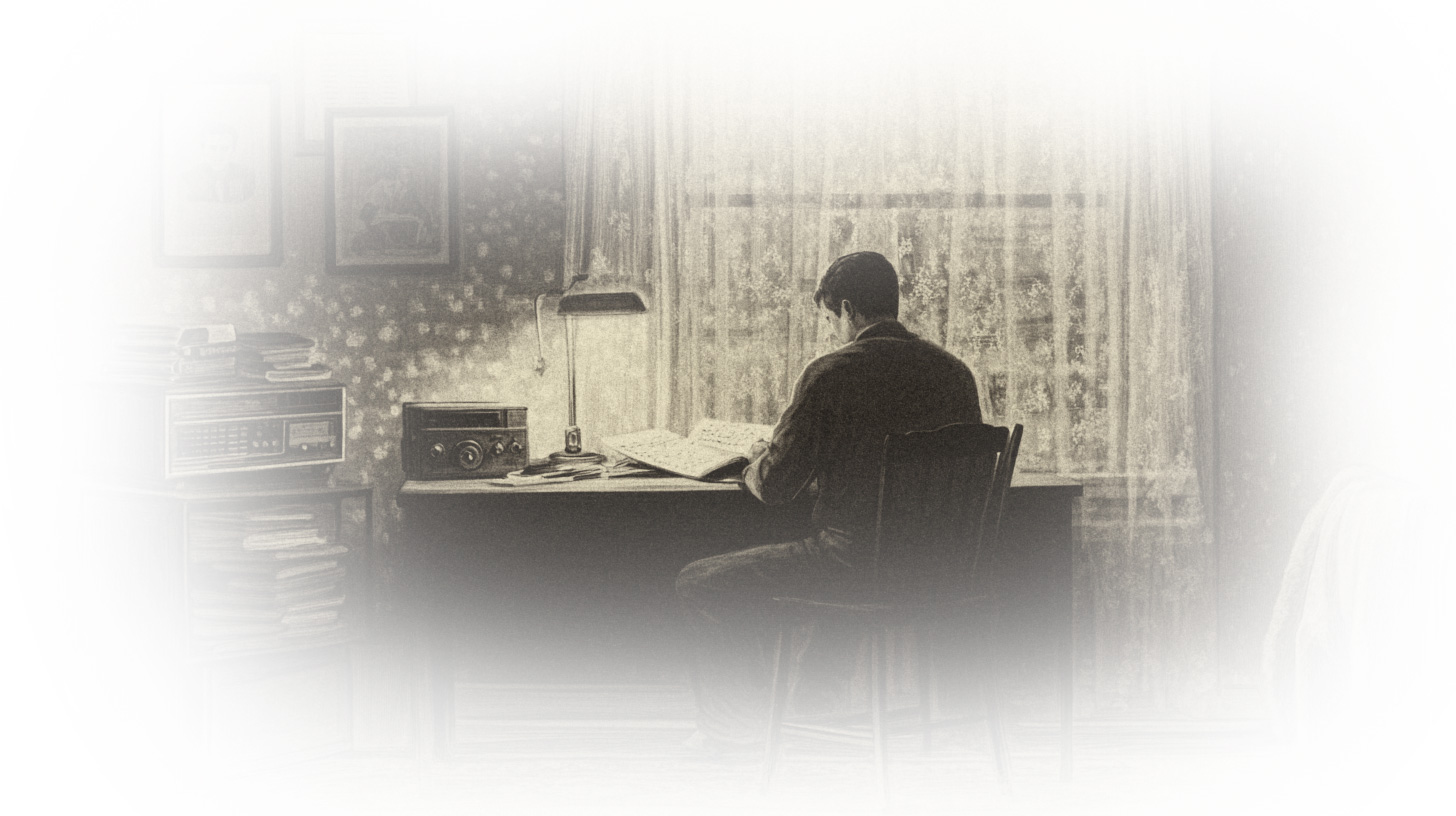
People at home, watched him with sorrow. They knew what he needed to heal—to fall in love again.
They are mobilized to introduce Mahir to potential brides—sometimes finding a way to arrange face-to-face meetings, other times showing him photographs.
Mahir remains indifferent to all these efforts. After work, he retreats to his room and writes poetry. Outside of work, he doesn’t even step out of the house.
Then, one day, his aunt, Semahat Hanım, places yet another young lady's photograph on the sideboard. She hesitates to bring up the subject directly, hoping instead that he will notice it on his own…
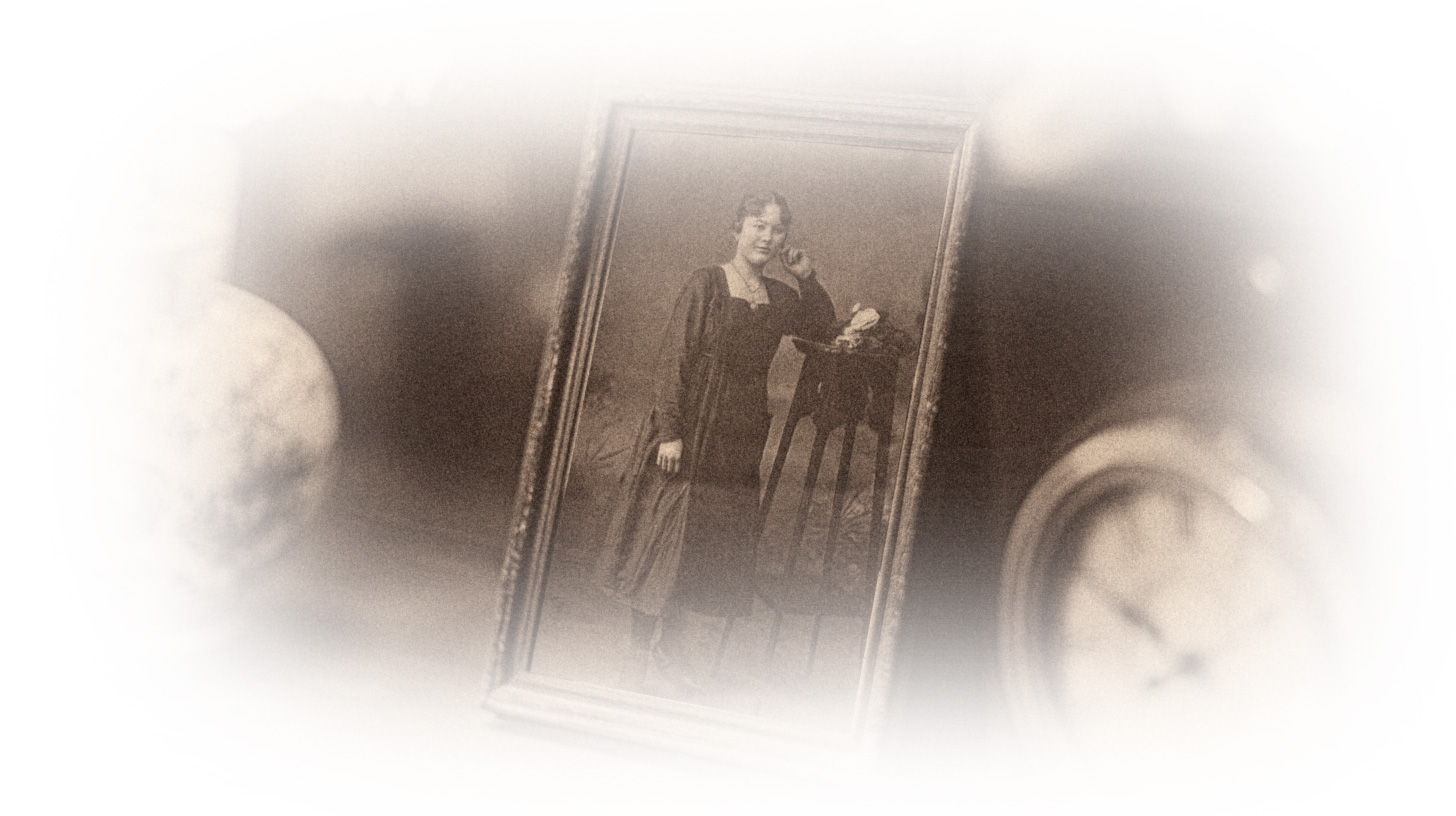
When Mahir comes home, he instinctively looks at the clock on the sideboard, which is why he immediately notices the photograph beside it. At first, he ignores it and focuses on the clock, but the lady in the picture manages to capture his attention.
He sees a strong resemblance between Nebiye Hanım and Leman. Perhaps, for the first time in years, a faint smile appears on his face. Calling out to Semahat, who is curiously watching from the kitchen doorway, he says, 'Auntie, let’s go meet this lovely lady.
They get married—my grandparents, Nebiye Hanım, and Mahir Bey. They have three children: Nerime and Orhan in Aynalıçeşme, Beyoğlu, and Meral in Büyükada. Just as Mahir had written on the back of Leman’s photograph, his new family becomes a ray of hope for him:
They searched for someone like you, and they found her.
With them, I try to wash away my sorrows.
I see that this girl loves me deeply too.
I, who never cared for children, was saved by my own.
Those who say, ‘A child is worth the world’ were right—
Their laughter has healed my wounds.
Even though she cannot completely erase Leman’s traces, Nebiye manages to conquer a large part of Mahir’s heart. She, too, becomes indispensable to him… So much so that, by emphasizing 'the three of us' at the end of his verses, he expresses that he cannot give up on either of them.
If being sinless is enough, our place is in heaven,
We will be happy in a home for three, Leman.
When I started writing this story, the name 'Leman' crossed my mind as a title. However, with each reading of these lines, I couldn't help but think of my grandmother, whom we lost long before these emotionally charged days. Nebiye Hanım was a strong woman—full of joy yet firmly authoritative.
When you look at the date on the poem written on the back of Leman Hanım's photograph, you realize that Mahir Bey wrote it while he was married to Nebiye Hanım. The fact that my grandmother knew her husband’s heart was shared with someone else, yet never withheld her love and dedication… That is not something just anyone could endure.
She wasn’t just the architect of her own life but also the one who rebuilt Mahir’s. She pulled a helpless man out of the pit he had fallen into and gave him a new reason to live. She was the true hero of this story.
I am sure that 'over there,' it is now Nebiye Hanım guiding both Mahir Bey and Leman Hanım as well.
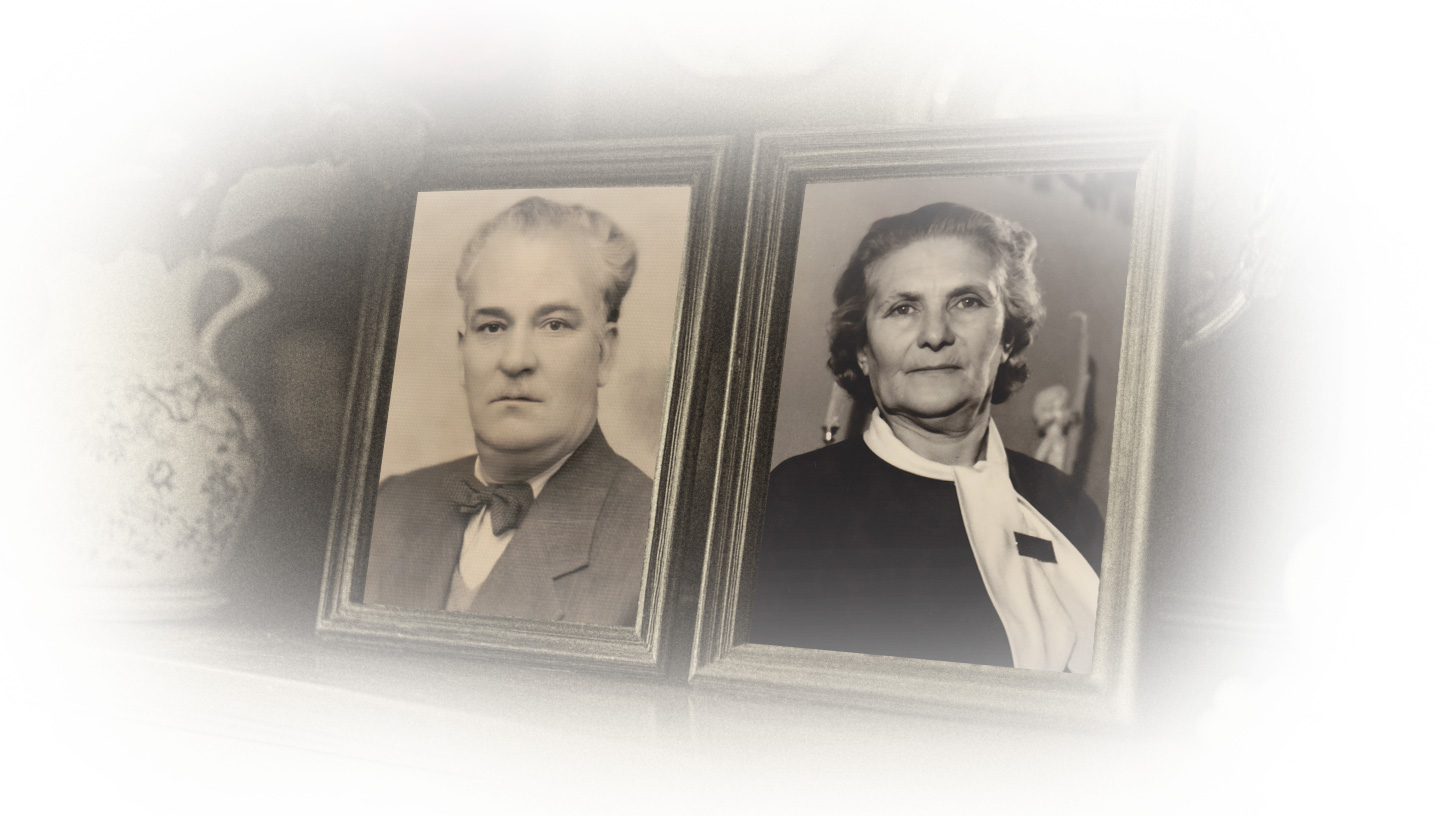
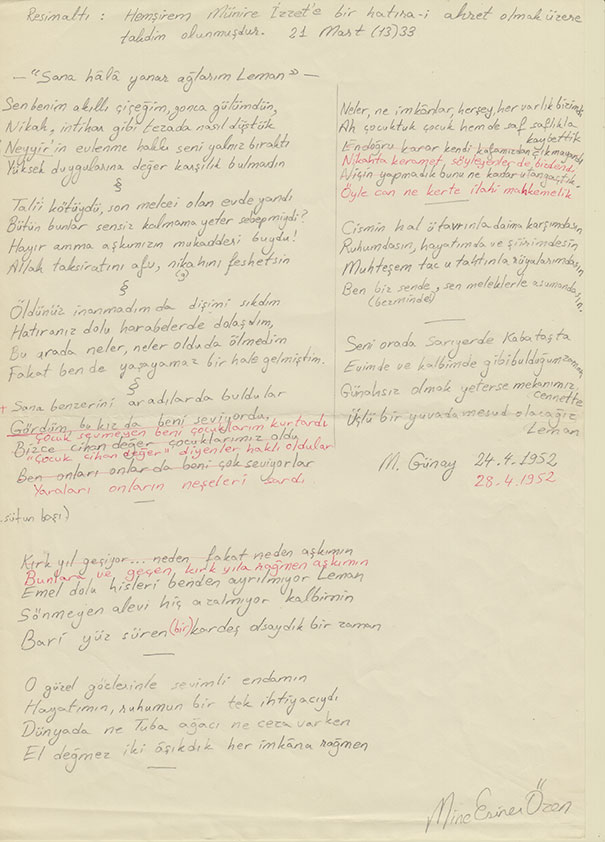
Who is Münire İzzet, to whom my grandfather dedicated the poem written on the back of Leman Hanım's photograph? Of course, I ask my aunt that as well. And from there, yet another story nearly unfolds.
During this whole time, my grandfather stays in touch with Leman Hanım’s sister, Münire İzzet. He tells others he is going to Kanlıca for yogurt, but in reality, he is meeting with Münire. She was just as deeply affected as Mahir by her sister’s decision to end her life. Upset with her own family, Münire has distanced herself and no longer sees her father. Mahir tries to support her, and at times, when she is struggling, my grandfather even provides her with financial help.
My aunt gets carried away; she starts talking about Madame Eleni.
Now, just like she did at first, I’ll avert my gaze from you. The topic—'Madame Eleni'—is sensitive..."
To all parents who dedicated themselves to their children's happiness without reflecting the sorrow and hardships they experienced in the past..



